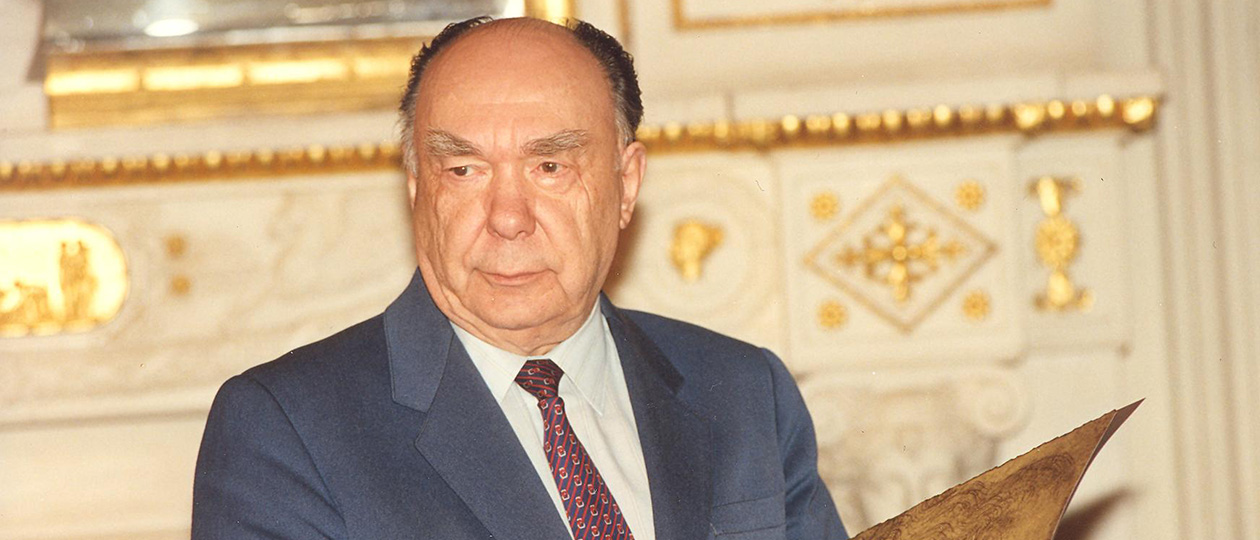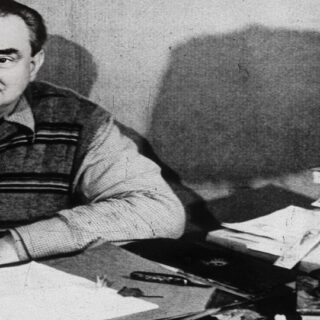
Once in 1974 when I was stationed in Canada, Alexander Yakovlev, our ambassador in that country, shared with me his views on Academician Andrei Sakharov who renewed his public attacks on Kremlin’s policy. Before his assignment in Ottawa Yakovlev worked at Central Committee as the actual head of Agitprop and was quite knowledgeable about the subject:
“Sakharov is, no doubt, an outstanding scientist who made a huge contribution to the defense capabilities of the USSR. But because of his involvement in top secret government projects he lived and worked for many years in strict isolation, detached from reality and deprived of proper understanding of what is happening in the world. Nevertheless, Sakharov imagined himself a great politician, while, like many scientists, he suffers from idealism, does not understand some basic things and does not realize that, behind the veil of talks about detente, the West wages a fierce struggle against us on all fronts, including ideology. Worst of all, the academician does not realize that with his current activities, his statements and publications, he is playing into the hands of our enemies. That’s why he is so extolled by the West…”
Yakovlev continued:
“Sakharov is a very stubborn person to the point of obsession, and at the same time he is vulnerable to outside influence. This became evident when he got acquainted with Elena Bonner, a woman, as they say, with a rich biography. After the war, looking for an appropriate husband, she used to hang around most prestigious Moscow universities, eager to sleep with anyone. And when she came across academician Sakharov, she made him henpecked. From the documents I had a chance to read at Central Committee, I learned that he would literally hang on her words.”
Eleven years later, while reporting to Izvestia from Washington, I witnessed a remarkable episode. In August 1985, Elena Bonner was allowed to go to the United States to have a bypass surgery in spite of objections by several top ranking officials like Communist party secretary Mikhail Zimyanin. “There is no doubt”, he said, “that Bonner will be used against us by the West. She’s got no decency or any sense of gratitude, this beast in a skirt.” And he was quite right on this subject.
As soon as she arrived in Boston and joined the family of Tatyana Yankelevich, her daughter from her first marriage, Bonner started granting interviews to American media. To the great delight of the Reagan administration, who used to call our country an Evil Empire, Sakharov’s second wife flagellated the USSR. By that time, many Soviet dissidents realized, as Alexander Zinoviev put it, that they were targeting communism, but hit Russia instead.
Many, but not Bonner. Each morning she would make herself available to reporters who were on guard around the clock near Tatyana Yankelevich’s cottage. With a cigarette in her mouth, Elena Bonner spelled out endless stories about the horrors of life in the USSR. This would most probably have continued until her hospitalization, were it not for a local reader of The Boston Globe. Upon seeing a photo of Bonner with the usual cigarette in her hands, he sent a letter to the newspaper’s editors: “If Mrs. Bonner really needs a bypass operation, why doesn’t she do what any person with heart problems would do first of all, i.e. quit smoking?”
As soon as his letter was published, Elena Georgievna disappeared from public view in the USA.
The most stunning thing, though, happened 4 years later. On December 14, 1989, Sakharov passed away and a few days later Ogonyok, the most popular weekly magazine of that era, published a series of dedications to him, composed by self-proclaimed democrats, branded as perestroika’s vanguard.
The very first article in that series was bylined by Yakovlev. In it, differently from what he told me in his office in Ottawa, Alexander Nikolaevich portrayed the deceased academician as a courageous fighter against tyranny and a moral compass, whose death the Soviet society should bitterly mourn and perceive as an irreparable loss.
Not a word, not even a hint on what Yakovlev volunteered to share with me 15 years earlier. In such a situation, in accordance with the ancient tradition, it would have been better for him to keep silent. Nevertheless, the perestroika architect considered it appropriate to lay the greatest wreath of praises on Sakharov’s grave.
Vitaly Korotich, editor-in-chief of Ogonyok, later recalled that Gorbachev, unlike his advisor Yakovlev, flatly refused to say anything in Sakharov’s memoriam.





